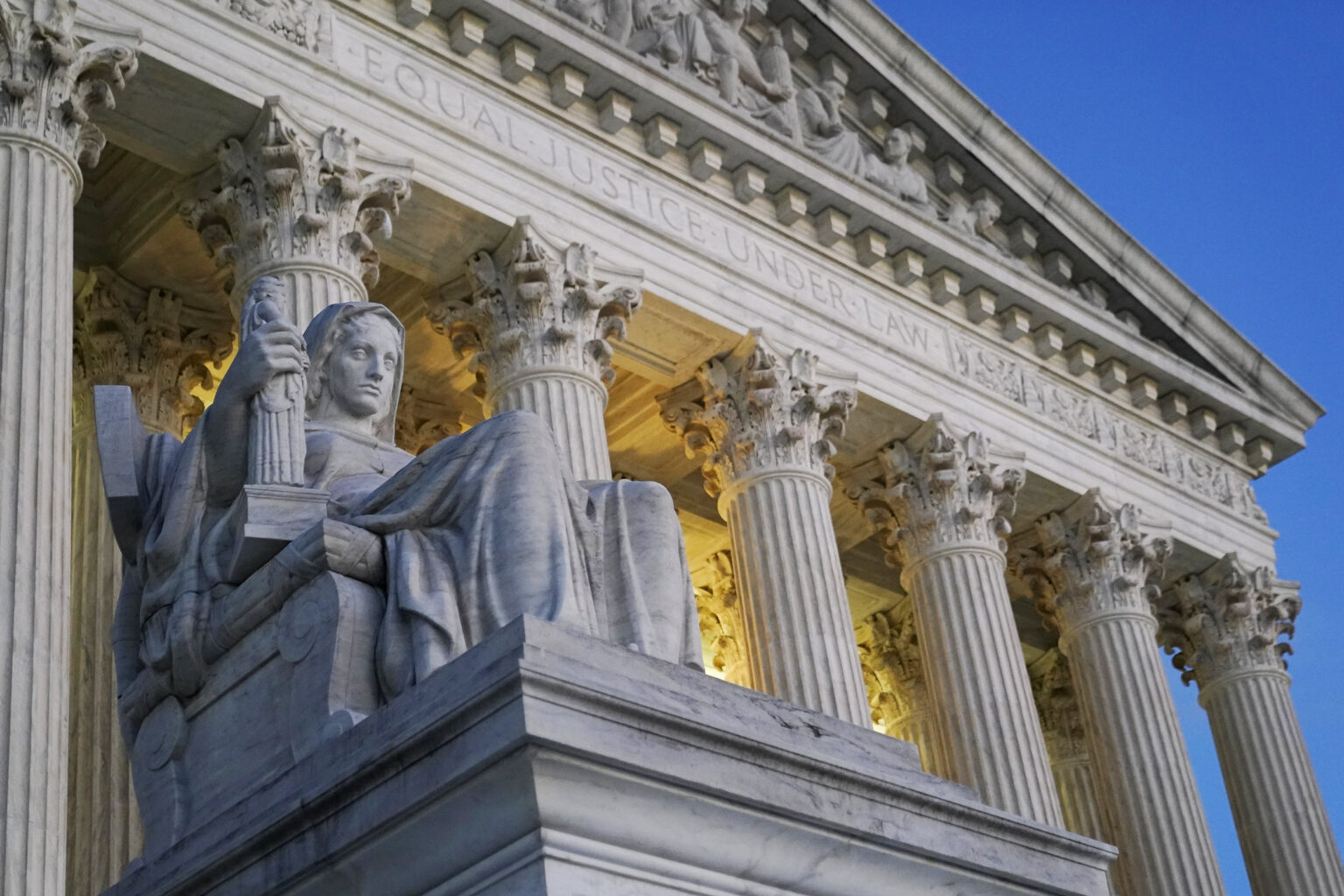Global Courant
WASHINGTON – The Supreme Court on Thursday reigned in favor of a Washington state concrete company trying to revive a lawsuit against the International Brotherhood of Teamsters alleging that a strike damaged its product.
The 8-1 decision, written by Judge Amy Coney Barrett, means the company, Glacier Northwest Inc., could file a lawsuit against the union in state court over an August 2017 strike in which drivers ran off the track and spilled wet concrete. left their trucks.
Barrett, one of the court’s six conservatives, wrote that a state court erred in dismissing the claims at such an early stage in the proceedings based on concerns that the claims violated the National Labor Relations Act (NLRA), a federal law prohibiting union activity.
“Because the union has taken affirmative steps to endanger Glacier’s property rather than taking reasonable precautions to mitigate that risk, the NLRA is likely not protecting its conduct,” Barrett wrote.
Organized labor advocates had expressed concern that a ruling in favor of the company could stifle strike action by chasing unions for a wide range of potential losses employers could incur as a result of such activities.
Liberal Justice Ketanji Brown Jackson disagreed, saying the ruling “threatens to undermine the right to strike”.
Jackson pointed to the fact that the National Labor Relations Board filed a complaint following the state court ruling, accusing the company of unfair labor practices and saying that the drivers’ actions were “arguably protected.”
By ruling in favor of the company, “the court is intervening in this conflict and adjudicating on the correctness of the union’s strike activity,” though this is not the best place to weigh the facts, she wrote.
“This case is Exhibit A as to why the board – not the courts – should usually take the first step in resolving contentious, evidence-based labor disputes of this nature,” she added.
However, Jackson noted that the state court could still put the case on hold while the labor board finishes its proceedings.
Noel Francisco, the company’s attorney, said the ruling “justifies the longstanding principle that federal law does not protect unions from tort when they deliberately destroy an employer’s property.”
Business interests that often conflict with organized labor have been highly critical of the labor council in the past. The conservative majority of the Supreme Court has spoken out against unions on several occasions in recent years, including a 2018 case in which the court said that public sector workers who choose not to join a union cannot be forced to pay a portion of the union dues to cover the costs of negotiating contracts.
The ruling comes because the number of strikes has increased a renewed interest in some sectors in the protection that union jobs can provide. It revolves around an incident where members of Teamsters Local 174 went on strike after negotiations for a new collective bargaining agreement failed.
Sean O’Brien, general president of the International Brotherhood of Teamsters, criticized the ruling, referring to the judges as “political hacksand said the court had “once again voted for corporations over working people” by throwing out a longstanding precedent.
“Make no mistake – this ruling is all about giving companies more power to hinder workers as an effort is made to fight back against a growing system of corruption,” he added.
As truck drivers left work, the company said some of the concrete it was already delivering had become unusable. Drivers returned trucks to the company’s facility, some with partial or full loads on board. As a result of the strike, concrete was left in the trucks that had to be removed to harden and then broken down before it could be disposed of, the company says.
The union says that when the workers returned the trucks, the cement was wet and they were running the drums on the trucks, which meant it wouldn’t solidify right away. It was the company’s decision to remove the concrete and then break it up once it set, the union says.
Glacier says it lost $100,000 due to a contract default on the day of the strike and is also seeking additional damages. The company says it was able to carry out the previously planned work the following week.
The Washington Supreme Court ruled for the union in December 2021, saying that any loss of concrete was “a side effect of a strike arguably protected by federal law.”
The company was backed by business and anti-union groups, including the U.S. Chamber of Commerce, which said in a briefing that the state court’s finding that willful destruction of property can be considered a protected activity violates precedent of the US Supreme Court.
Several unions and labor unions supported the Teamsters.




